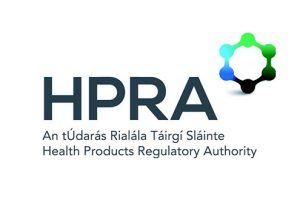New Indication for Zytiga in chemotherapy naïve patients with metastatic castration-resistant prostate cancer
 Janssen wish to announce that Zytiga has been approved as a treatment option for asymptomatic or mildly symptomatic patients with metastatic castration-resistant prostate cancer (mCRPC) who have failed on androgen deprivation therapy and in whom chemotherapy is not yet clinically indicated.
Janssen wish to announce that Zytiga has been approved as a treatment option for asymptomatic or mildly symptomatic patients with metastatic castration-resistant prostate cancer (mCRPC) who have failed on androgen deprivation therapy and in whom chemotherapy is not yet clinically indicated.
Many hormone dependent cancers become refractory after one to three years and resume growth despite hormone therapy.1 The term castration-resistant is now used for this type of cancer in place of “hormone refractory” because, while they are no longer responsive to castration treatment (reduction of available androgen by chemical or surgical means), these cancers still show reliance upon hormones for androgen receptor activation.1 In recent years several treatments have become available that improve survival of patients with castration-resistant prostate cancer.
Zytiga (abiraterone acetate) is a specific inhibitor of CYP17, which blocks androgen biosynthesis in the adrenals, testes and tumour itself. This new indication for Zytiga is supported by the interim analysis of a randomised clinical trial comparing abiraterone and prednisone versus placebo and prednisone for mCRPC in chemotherapy-naïve patients.2
Study design2
COU-AA-302 was a phase III, multinational, randomised, double-blind, placebo-controlled study evaluating the clinical benefit of abiraterone plus prednisone versus prednisone in mildly symptomatic or asymptomatic patients with progressive mCRPC without prior chemotherapy. A total of 1,088 men were randomised to abiraterone 1000mg and prednisone 5mg orally twice daily vs placebo and prednisone.
The trial had co-primary endpoints of overall survival and radiographic progression-free survival (rPFS). In addition to the co-primary endpoint measures, benefits were also assessed using time to opiate use for cancer pain, time to initiation of cytotoxic chemotherapy, time to deterioration in ECOG performance score by ≥ 1 point and time to PSA progression based on Prostate Cancer Working Group-2 (PCWG2) criteria. Median duration of follow-up was 27.1 months.
47% improvement in radiographic progression-free survival with Zytiga2
At the planned rPFS analysis, patients treated with Zytiga had survived a median of 16.5 months with no radiographic evidence of progression compared to 8.3 months for patients treated with placebo (p<0.0001) (see Figure 1). This represents a 47% reduction in the risk of disease progression in the Zytiga arm.
Figure 1: Co-primary endpoint – radiographic progression-free survival2
21% improvement in overall survival with Zytiga2
The Zytiga group had a median overall survival of 35.3 months compared with 30.1 months for the placebo group, representing a 21% decrease in risk of death. However, this improvement did not meet the prespecified definition for statistical significance.
All secondary end points favoured Zytiga2
In addition to the observed improvements in overall survival and rPFS, benefits were demonstrated for Zytiga vs. placebo treatment in all secondary endpoint measures (see table 1). These included a delayed time to opiate use and chemotherapy. Subsequent therapy with docetaxel was common in both arms.
Table 1: Secondary endpoints2
| Secondary endpoint | Abiraterone plus prednisone | Placebo plus prednisone | p Value* |
| Median (months) | Median (months) | ||
| Time to opiate use (cancer-related pain) | NR | 23.7 | 0.0002 |
| Time to chemotherapy initiation | 26.5 | 16.8 | < 0.0001 |
| Time to ECOG PS deterioration | 12.3 | 10.9 | 0.0052 |
| Time to PSA progression | 11.1 | 5.6 | < 0.0001 |
* All secondary end points remain significant after adjusting for multiplicity testing.
No new safety concerns were identified despite longer Zytiga treatment exposure. Grade 3 or 4 mineralocorticoid-related adverse events and increases in alanine aminotransferase (ALT) and aspartate aminotransferase (AST) were more common with Zytiga.2
Conclusion
In patients with asymptomatic and mildly symptomatic metastatic prostate cancer without prior chemotherapy, treatment with Zytiga plus prednisone led to a significant improvement in radiographic progression-free survival and a trend toward improved overall survival after a median follow-up of 27.1 months. Zytiga also significantly delayed time to opiate use, chemotherapy initiation, ECOG PS deterioration and time to PSA progression.2
Zytiga is the first medicinal agent to be indicated for the treatment of metastatic castration-resistant prostate cancer in adult men who are asymptomatic or mildly symptomatic after failure of androgen deprivation therapy in whom chemotherapy is not yet clinically indicated.
Full prescribing information and references available from Janssen-Cilag Ltd. Telephone: (01) 6202300. MIMS Ireland Copyright®
1- Molina A and Belldegrun A. J Urol. 2011 Mar;185(3):787-94.
2- Rathkopf D, et al. GuCS 2013; Abstract 5.
 MIMS Ireland
MIMS Ireland







